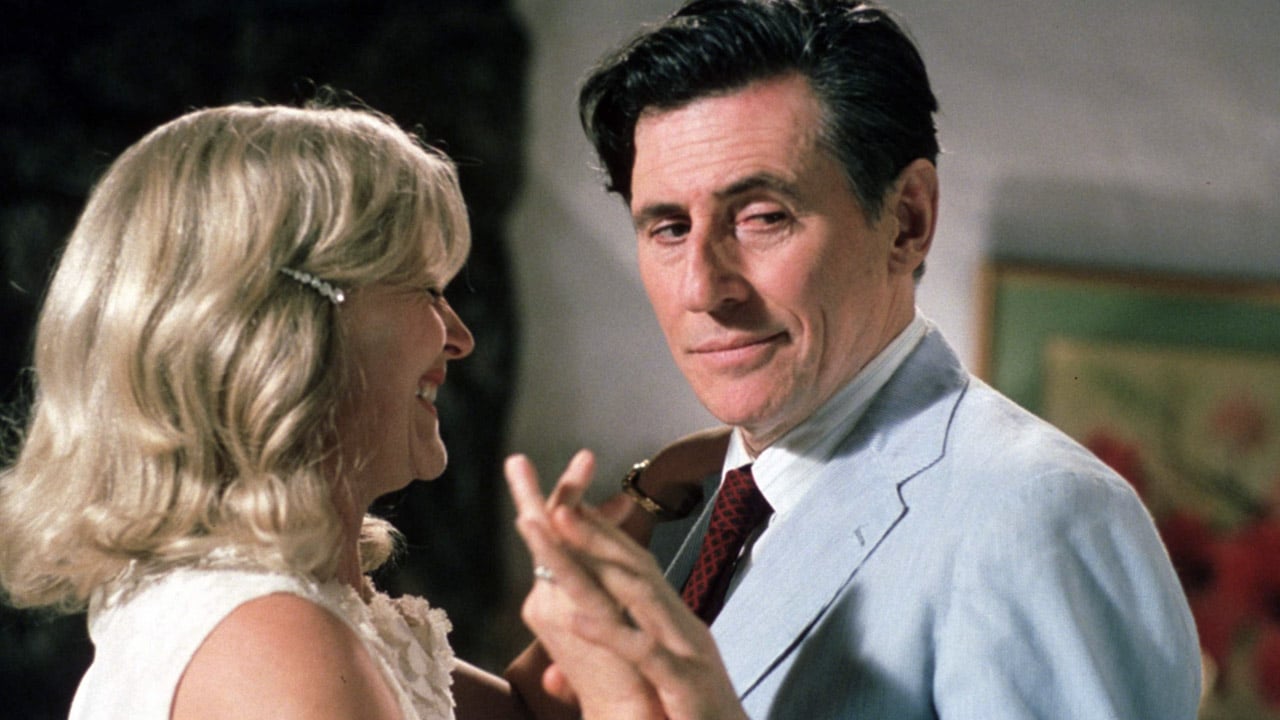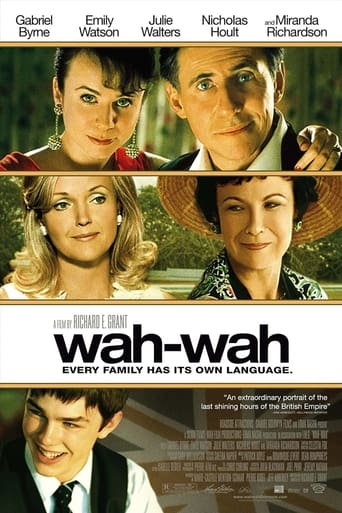Spidersecu
Don't Believe the Hype
ActuallyGlimmer
The best films of this genre always show a path and provide a takeaway for being a better person.
Kien Navarro
Exactly the movie you think it is, but not the movie you want it to be.
Tayyab Torres
Strong acting helps the film overcome an uncertain premise and create characters that hold our attention absolutely.
mcollins-78667
Having never heard of these film I was surprised how good it was. Casting was wonderful and the tone, dialogue and costumes very authentic.Enjoyable. Have recommended it to friends and would easily watch it again.Perhaps it would appeal mostly to people who were the same age at that time, which I am. It was quite nostalgic.Gabriel Byrnes and Nicholas Hoult were perfectly cast.
KobusAdAstra
An interesting Coming of Age film taking place in Swaziland in the late 1960s and early 70s, round about the time of the country gaining independence from England. In this outpost very British traditions are upheld and the ex pats try to keep it up by playing cricket, having tea parties and living in comfort while served by their large numbers of servants, all in true colonial style.A young boy, Ralph Compton, sees his mother having intercourse with another man; this would affect him much. Eventually his parents get divorced, his old man marries again - and starts drinking. Ralph lives in his own world and enacts scenes he witnessed as his parents' marriage breaks apart, using his puppets. The boy seems to cope somehow and eventually finds his own voice.The film has some good acting, particularly by old man Compton (Gabriel Byrne) and Ralph (Nicholas Hoult). The cinematography is good and effectively brings dusty Swaziland into your home. I would have loved some appropriate background sounds too, perhaps local bush-veld birds calling for instance. Halfway through the film becomes a bit too sentimental to my taste, but fortunately not for long. All in all it was a delightful film. I score it an above average 8/10.
gradyharp
Gifted actor Richard E. Grant makes his writing and directing debut with this highly entertaining film about the last days of British colonial protectorate of Swaziland, East-South Africa, drawing from his memoirs as a child growing up in Swaziland the time when the Kingdom of Swaziland was given its independence from British rule. The autobiographical nature of the film aids in Grant's sensitive approach to creating this drama tinged with comedy and the result if a film that is one of the strongest depictions of the end of British colonialism in the world. Supported by a sterling cast Grant makes a strong impression with this delightful outing.Harry Compton (Gabriel Byrne) is the Minister of Education for Swaziland, respected by both the natives and the snobbish, insular, stuffy colonialists who live in the isolation of the colony's chief city. Harry is married to Lauren (Miranda Richardson) whose disgust with her husband's home habits and the stifling life of the colonialists is placated by adultery: her latest affair is with John Traherne (Ian Roberts) whose wife Gwen (Julie Walters) is a close friend of the family. Their son Ralph (played as a young boy by Zachary Fox and as an older lad by Nicholas Hoult) discovers his mother's adultery and the family comes to a disastrous crumble as Lauren leaves Harry and Ralph to escape her perceived prison. Harry descends into alcoholism and Ralph is sent away to boarding school, only to return a few years later to find that Harry has married a tacky but truthful American Ruby (Emily Watson) whose presence is the center of disgust from the colonials lead by their Lady Hardwick (Celia Imre) and who mimics the colonial snobbery by terming their insular and foolish language as 'wah-wah'.Gradually Ruby wins the confidence and respect of Ralph and as the time approaches for the British to hand over the independence to the natives, Princess Margaret is scheduled for an appearance and the colonials led by Lady Hardwick plan a performance of 'Camelot' for the occasion. Ralph discovers he can both sing and act and wins a role in the play, finding the beginning of his true self at last. How the production and the Princess' visit come off and how the intricacies of the Compton family are resolved serve as the finale of the film.There are numerous subplots in the film and not all of them are fully realized or even necessary, but chalk that up to the 'first film' experience of Grant. Grant does demonstrate a sturdy hand in directing a cast of superb actors, both British and African including the excellent John Matshikiza whose Dr. Zim Mzimba represents one of the only grounded minds in the film. The beauty of Swaziland is captured by the lush photography by Pierre Aïm and a thoroughly charming musical score by Patrick Doyle. Not only is the story entertaining and well told, it also gives us insights into the machinations of the last of the British Empire era. Recommended viewing. Grady Harp
Gordon-11
This is an autobiographical film about a child's turbulent childhood in a small African country.The good thing about this film is that the characters are amazing. Acting by the various lead characters are superb. There are drunk fathers, charming seductress, unhappy children and pretentious upper class figures. They all do an excellent job at portraying their respective character. The scene that struck me the most deeply is that the young child prays for his mother to come back. It is the most touching! However, the main weakness of the movie is that it is at some point rather confusing, and can be boring to watch due to the very nature of the film.I can imagine the process of making this movie must be very painful to the director. Thank you for bringing your story to the screen!

